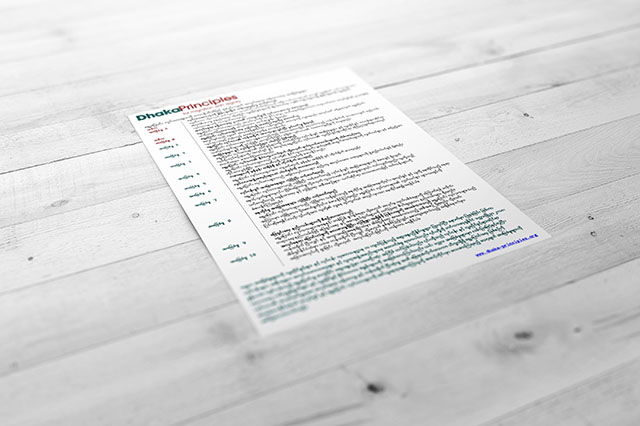Dhaka Principles for Migration with Dignity

A set of principles for the responsible recruitment and employment of migrant workers.
The Dhaka Principles for Migration with Dignity (the “Dhaka Principles”) are a set of human rights based principles to enhance respect for the rights of migrant workers from the moment of recruitment, during overseas employment, and through to further employment or safe return to home countries. They are intended for use by all industry sectors and in any country where workers migrate either inwards or outwards.
The need by business for a set of overarching principles relating to migrant workers was identified between 2009 and 2011 during a programme of multi-stakeholder roundtables convened by IHRB and other partners in the UK, Mauritius, Bangladesh, and India. Input and feedback from all the roundtable participants and beyond have been an important part of their formulation.
The Dhaka Principles were developed by the Institute for Human Rights and Business after wide consultation and are supported by business, government, trade unions and civil society. They were first shared publicly at a migration roundtable in Dhaka, Bangladesh, June 2011 and launched on 18 December 2012. The final draft was agreed and endorsed by the Confederation of International Recruitment Agencies (Ciett, now the World Employment Confederation) and the International Trade Union Confederation (ITUC).
 English
English မြန်မာ
မြန်မာ မြန်မာ (unicode)
မြန်မာ (unicode)






